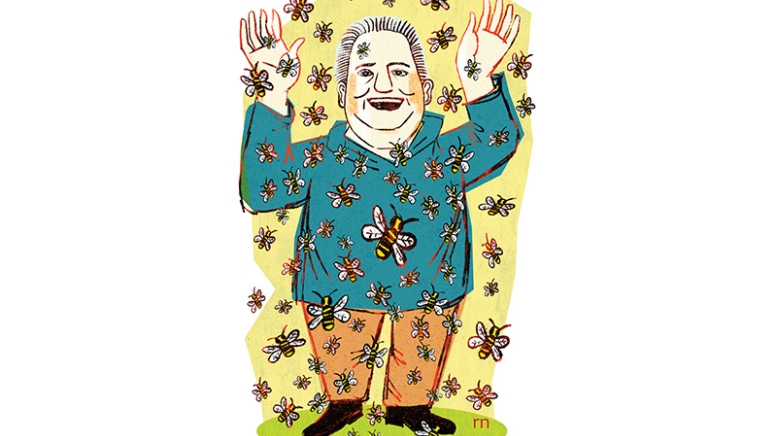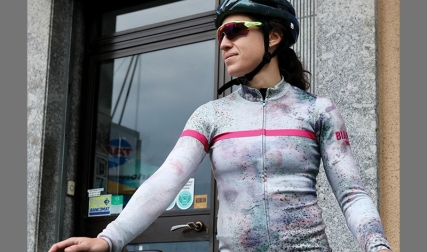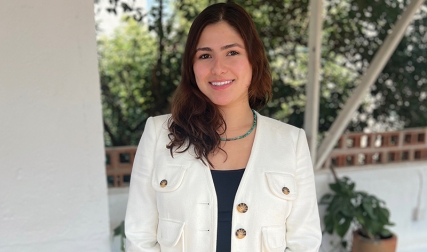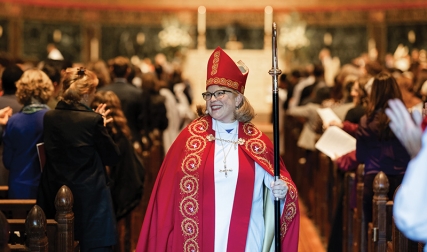When Hammond spurred his classmates to start a pollinator garden project in 2021, they leaped into action. His volunteers have now planted three dozen gardens in the Upper Valley, including 20 on campus. “Everyone benefits. It’s apolitical, and it’s not too difficult,” says Hammond, who runs a nonprofit, Creating Habitats for Pollinators (CHP). More than 100 U.S. crops depend on bees and butterflies—which are threatened by habitat loss and pesticides. “If pollinators are doing well,” he says, “the environment does well.”
Based in Canton, Michigan, where the environmental studies and geography major lives, CHP has seeded a half-million square feet, or about 13 acres, in four states. “Larger corporations have started to inquire about hiring us to install pollinator gardens at their headquarters for ‘a sustainability feel,’ a new and potentially lucrative revenue stream,” says Hammond. “Five hundred square feet, 40,000 square feet—we can do both. You get a vibrant garden going, and you see people taking walks, taking photos, out to do some sketching.”
Last October, Hammond, his classmates, and several student volunteers seeded seven new gardens on campus, including one at the president’s residence, and 16 more on small traffic islands in the Dewey parking lot. “It’s a pilot project in the middle of this concrete jungle,” Hammond says.
Tim McNamara, former associate director of facilities operations and management at the College, serves on CHP’s board, and, as mayor of Lebanon, New Hampshire, has encouraged local plantings by Hammond and other volunteers. “Introducing that wild beauty—people notice it and love it,” he says. “That pop of color and beauty provides a bright moment in people’s day.”
This article has been updated. An earlier version mistakenly reported the amount of land Creating Habitats for Pollinators has planted. It has planted a half-million square feet, or about 13 acres, in four states.





